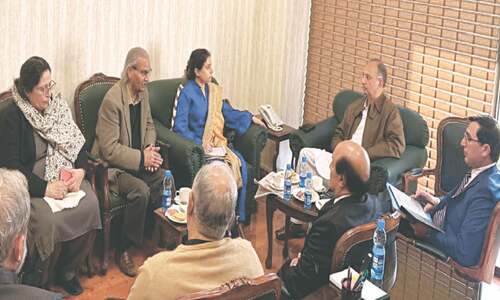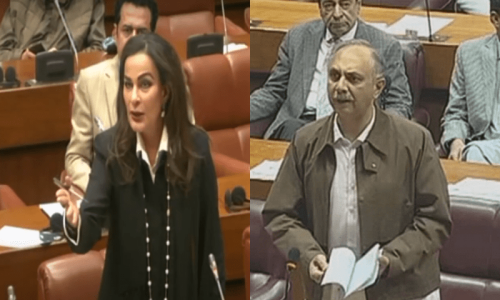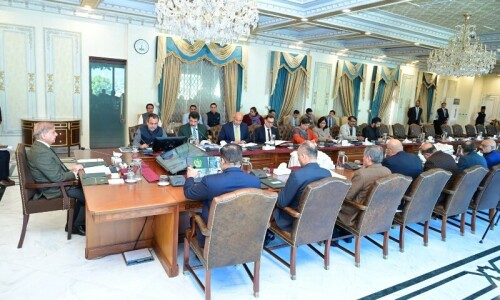ISLAMABAD, Jan 10: Prime Minister Yousuf Raza Gilani had constituted a five-member cabinet committee to pen in proposals for the replacement of the controversial ‘National Accountability Bureau (NAB) Ordinance’ with the ‘Holder of Public Office Accountability 2009’, Law Minister Farooq H. Naek said here on Saturday.
“I had a meeting with the prime minister this morning in which the idea for the formation of the committee has been approved,” the law minister told reporters here at the Supreme Court building after the oath-taking ceremony of the Press Association of the Supreme Court. The minister administered the oath of office to the newly elected body of the association.
Presided over by the prime minister, the cabinet committee will comprise the law minister, Inter-Provincial Coordination Minister Senator Raza Rabbani, Labour Minister Syed Khurshid Shah and Parliamentary Affairs Minister Senator Babar Awan.
The committee has been tasked to finalise proposals for the cabinet to approve a law called the ‘Holders of Public Office Accountability 2009’ under which an independent Ehtesab (accountability) commission will be set up to replace the National Accountability Bureau, blamed for victimising political opponents of the government.
The chairman of the commission would be appointed by the prime minister with the consultation of the opposition leader in the National Assembly, the minister said, adding safeguards would be put in pace while formulating the law, to do away with the practice of using it for political victimisation.
After the establishment of the commission, all pending litigations before the NAB courts would be referred to four chief justices of the high courts. The new law would empower the chief justice to appoint a special bench or a tribunal to try the holders of public offices accused of corruption. The cases involving government officials would be shifted to the relevant anti-corruption courts.
The law minister said only the parliament had the authority to make laws while the role of the judiciary was confined to interpreting such laws in accordance with the law and the Constitution.
“If everyone remains confined within the predetermined role as enunciated in the Constitution, the better it would be for Pakistan,” the minister said.
Explaining the difference between judicial activism and judicial adventurism, he said any review by courts for the rights of common citizens came under judicial activism but if courts acted outside the sphere of the Constitution, it would deem to be judicial adventurism.
On the role of the press, he said, pen was mightier than the sword and its freedom had been enshrined under Article 19 of the Constitution.
He said both President Asif Zardari and Prime Minister Gilani firmly believed in the freedom of the media as was envisioned by PPP chairperson Benazir Bhutto and ensured that no curbs would be put up by the present government to gag the press.














































Dear visitor, the comments section is undergoing an overhaul and will return soon.